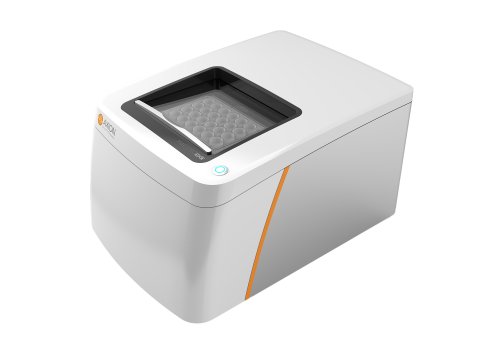Wendiao Zhang, Ming Zhang, Zhenhong Xu, Hongye Yan, Huimin Wang, Jiamei Jiang, Juan Wan, Beisha Tang, Chunyu Liu, Chao Chen and Qingtuan Meng
Nature Communications, 24 August 2023
Scientists use human forebrain organoids on Maestro MEA to investigate the relationship between genetic factors and schizophrenia in vitro.
The pathogenesis of schizophrenia is associated with genetic factors, but the relationship is not well understood. In this study, scientists analyzed genomics data from several published datasets to identify a mitochondrial gene, Propionyl-CoA Carboxylase Subunit Beta (PCCB), as a risk factor for schizophrenia. After identifying PCCB, the team generated human forebrain organoids and used a multiplatform approach to evaluate phenotypes of PCCB knockdown in vitro.
To explore electrophysiology in the human forebrain organoids, the researchers used Axion’s noninvasive Maestro multielectrode array (MEA) platform and found that PCCB knockdown organoids demonstrated both hyperactivity and decreased synchrony—phenotypes that are also observed in patients with schizophrenia via EEG and MEG. Overall, the team’s approach using multiomic analyses “revealed connection between PCCB and SCZ, highlighting that PCCB may contribute to SCZ etiology through regulating the GABAergic pathways and mitochondrial function.”


